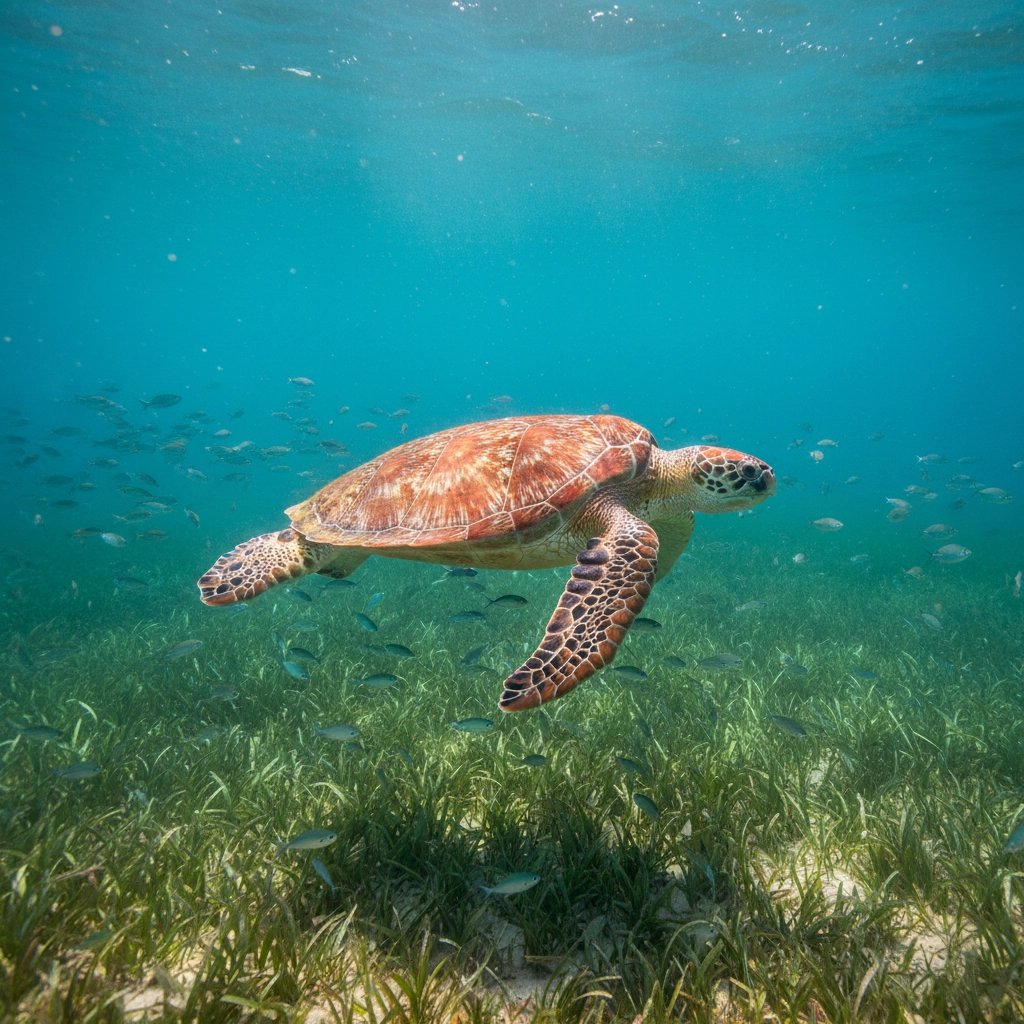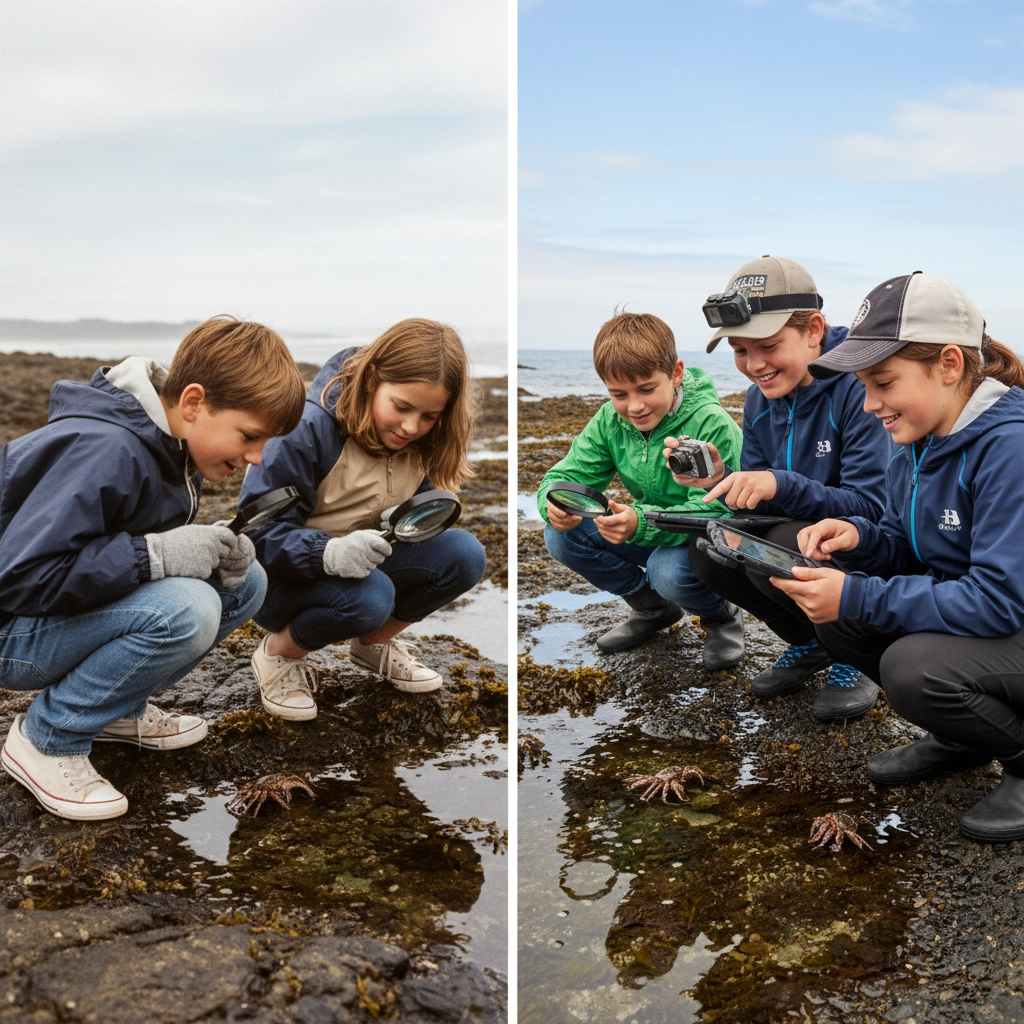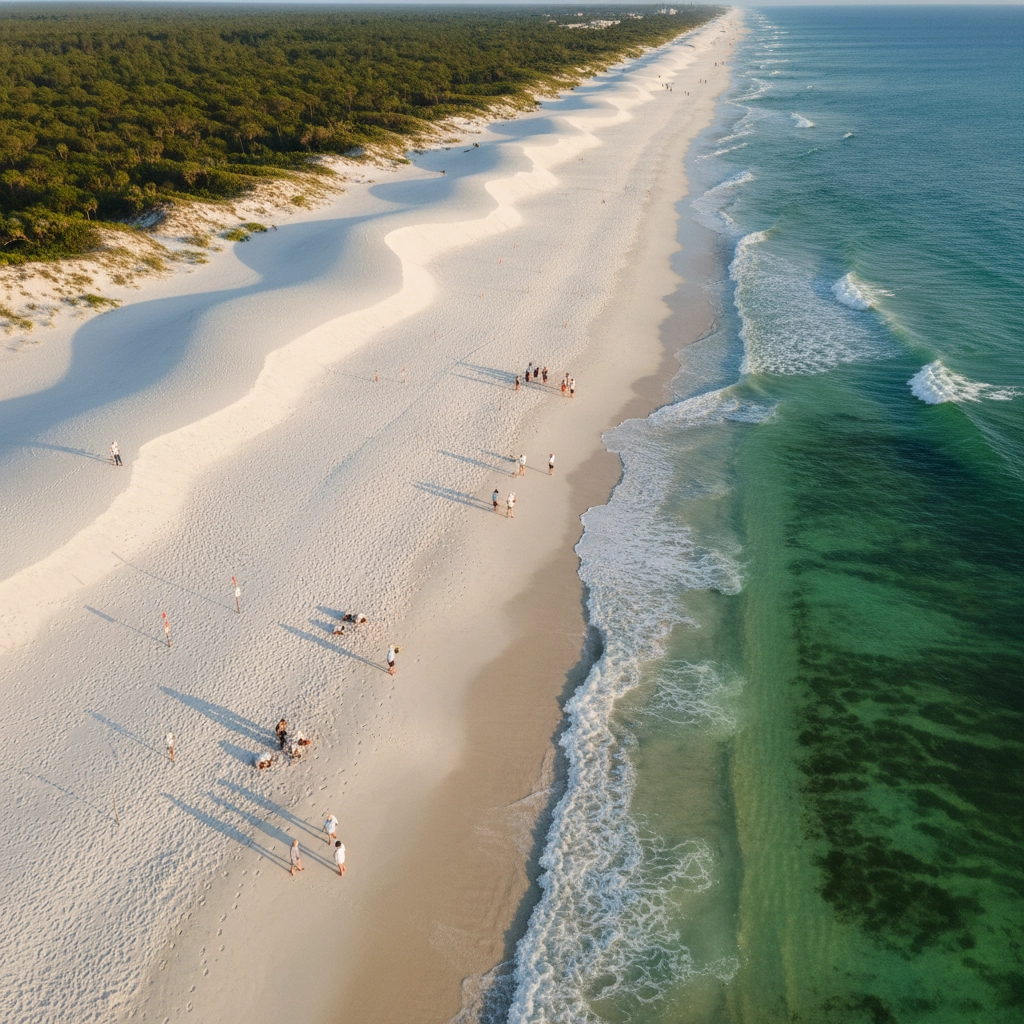Are Traditional Marine Biology Field Trips Dead? Do Students Still Learn From Beach Cleanups?
- Caleb Mullenix
- Nov 12, 2025
- 5 min read
Ensuring meaningful marine science education for your students requires addressing a critical question facing educators today: whether traditional field experiences remain effective learning tools in our modern educational landscape. The answer is unequivocally yes: both traditional marine biology field trips and beach cleanup activities continue to deliver transformative educational outcomes that cannot be replicated in classroom settings alone.
The Current State of Marine Field Education
Traditional marine biology field trips are experiencing a renaissance rather than decline. Educational programs across coastal regions report increased enrollment and measurable learning outcomes from hands-on marine experiences. Students participating in weeklong field expeditions to coastal destinations including Texas, Florida, and international locations like Fiji demonstrate significant improvements in scientific literacy and conservation awareness.
Beach cleanup programs have evolved beyond simple waste collection into sophisticated citizen science initiatives. Students learn proper data collection methodologies, environmental monitoring techniques, and scientific communication skills while contributing to national research databases that inform marine policy decisions.

Documented Learning Outcomes from Beach Cleanup Programs
Beach cleanup activities provide authentic scientific learning experiences that engage students in meaningful research. The Pacific Northwest's Ocean Guardians program documented remarkable results: elementary students removed over 15,000 pounds of plastic waste in one academic year while simultaneously developing scientific observation skills and environmental stewardship values.
Students participating in structured beach cleanup programs demonstrate improved performance in:
Scientific data collection and analysis techniques
Environmental problem-solving and critical thinking skills
Written and oral scientific communication abilities
Understanding of marine ecosystem interconnections
Conservation action planning and implementation
The educational impact extends beyond individual learning. One documented case study involved high school students who discovered an unexpected seahorse aggregation during systematic shoreline surveys. Their meticulous data collection led to the area receiving protected habitat status, demonstrating how student research contributes to genuine conservation outcomes.
The Enduring Power of Traditional Field Expeditions
Field expeditions to marine environments remain marquee educational experiences that transform student understanding of ocean science. Landlocked school districts routinely invest in weeklong coastal expeditions, recognizing that direct exposure to marine ecosystems creates learning opportunities impossible to replicate through classroom instruction alone.
During these expeditions, students attend research seminars, visit university laboratories, tour marine research facilities, and work directly with conservation organizations and marine professionals. The transformative power emerges from direct mentorship connections with working scientists who make abstract concepts tangible and demonstrate viable career pathways in marine science.

Emerald Coast Sea Turtle Research as Educational Model
The Emerald Coast provides an exceptional case study for combining traditional field experiences with modern research methodologies. Sea turtle conservation programs along this coastline integrate multiple learning approaches that demonstrate the continued effectiveness of both field trips and cleanup activities.
Students participating in Emerald Coast sea turtle programs engage in:
Traditional Field Trip Components:
Guided turtle nesting site observations during peak nesting seasons
Marine ecosystem exploration including seagrass beds and coral reef systems
Interaction with sea turtle rehabilitation facilities and research centers
Direct mentorship from marine biologists and conservation professionals
Modern Experiential Activities:
Beach cleanup with systematic marine debris documentation
Citizen science data collection for turtle nesting monitoring programs
Habitat restoration activities including dune vegetation planting
Water quality testing and environmental monitoring protocols
This integrated approach demonstrates that traditional and modern methodologies complement rather than compete with each other. Students develop comprehensive understanding of marine conservation challenges while acquiring practical research skills applicable across scientific disciplines.
Comparative Analysis: Traditional vs. Modern Approaches
Research indicates that combining traditional field experiences with modern experiential activities produces optimal learning outcomes. Traditional field trips excel at providing:
Immersive ecosystem exposure that builds foundational understanding
Professional mentorship opportunities that inspire career interest
Comprehensive scientific methodology demonstrations
Long-term memory formation through multi-sensory experiences
Modern experiential activities like beach cleanups contribute:
Authentic research participation with measurable community impact
Development of citizen science skills applicable to multiple contexts
Enhanced environmental stewardship and personal responsibility
Practical problem-solving experience addressing real conservation challenges

Evidence-Based Learning Outcomes
Marine literacy programs demonstrate measurable educational effectiveness through documented student achievements. Beach COMBERS and similar programs train students to conduct systematic shoreline surveys, documenting marine debris patterns, beached organism identification, and wildlife presence monitoring.
Students develop transferable skills extending beyond marine science:
Critical thinking through hypothesis formation and testing
Data analysis and statistical interpretation abilities
Scientific writing and presentation communication skills
Collaborative research methodology and teamwork capabilities
Environmental problem-solving and solution implementation
A documented case involved reluctant readers who became passionate about ocean conservation after participating in sea turtle monitoring programs. Reading comprehension improved dramatically when students pursued marine biology texts to understand research findings and conservation strategies.
Innovation in Marine Field Education
Rather than disappearing, marine education programs continue evolving to expand accessibility and effectiveness. Virtual marine education components now complement field experiences, breaking down geographical barriers while maintaining hands-on learning components.
Innovative programs integrate:
Interactive touch tank experiences with live marine organisms
Virtual reality simulations of coral reef ecosystem dynamics
Tide pool exploration with systematic species identification protocols
Marine debris analysis using scientific classification systems
Underwater camera technology for non-invasive wildlife observation
These technological enhancements supplement rather than replace direct field experiences, recognizing that tactile learning remains essential for comprehensive scientific understanding.

Practical Implementation Recommendations
Ensure maximum educational impact from marine field programs by implementing structured approaches that combine traditional and modern methodologies:
Pre-Trip Preparation:
Establish clear learning objectives connecting to curriculum standards
Provide background knowledge through virtual marine ecosystem exploration
Assign student research roles for specific conservation questions
Coordinate with marine professionals for mentorship opportunities
Field Experience Structure:
Balance guided exploration with independent student investigation
Incorporate systematic data collection protocols into all activities
Schedule direct interaction time with marine science professionals
Document student observations through multiple media formats
Post-Trip Integration:
Require formal presentation of research findings to school community
Connect student data to ongoing marine research databases
Encourage continued engagement through follow-up conservation projects
Evaluate learning outcomes through comprehensive assessment protocols
Future Directions for Marine Field Education
Marine field education continues advancing through integration of traditional field experiences with cutting-edge research methodologies. Programs increasingly emphasize student-led research projects that contribute to scientific understanding while developing critical thinking skills essential for future scientific careers.
Successful programs demonstrate that environmental challenges require both foundational scientific knowledge gained through traditional field experiences and practical problem-solving skills developed through hands-on conservation activities. The most effective educational approaches recognize these methodologies as complementary components of comprehensive marine science education.
The evidence overwhelmingly supports continued investment in both traditional marine biology field trips and modern experiential activities like beach cleanups. These programs deliver measurable learning outcomes, inspire conservation action, and prepare students for scientific careers while addressing critical environmental challenges facing marine ecosystems.
Marine field education thrives when educators recognize that transformative learning occurs through direct sensory connection with ocean environments, authentic research participation, and meaningful interaction with conservation professionals. Your students deserve these powerful educational experiences that textbook instruction alone cannot provide.



Comments